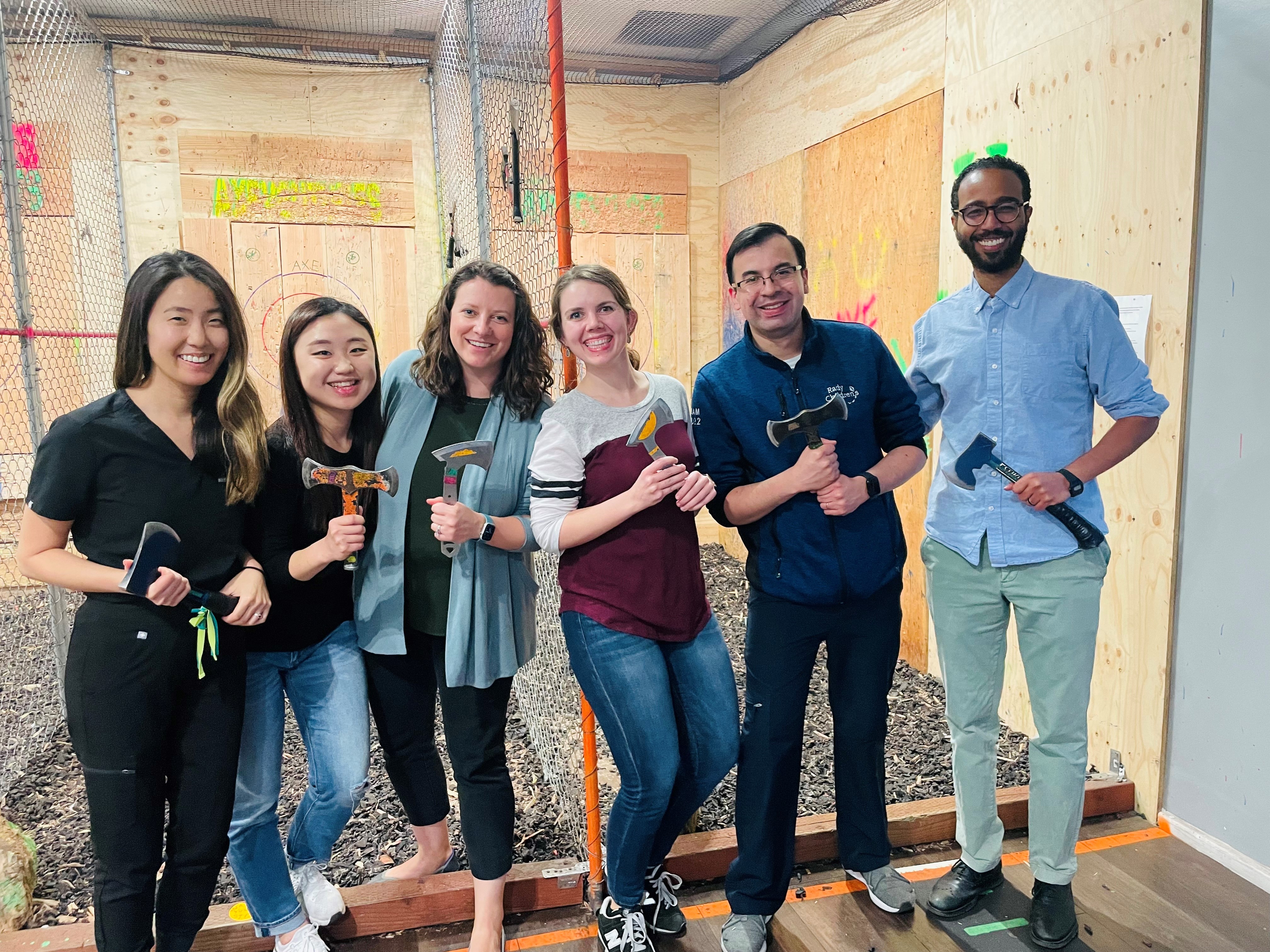Education
- Fellowship
- Application Procedure
- Current Fellows
- Alumni
- Contact Us
The three-year fellowship in pediatric cardiology is an ACGME-accredited program designed to prepare exceptional clinicians and investigators to become active participants and leaders in academic pediatric cardiology. The clinical training is provided at Rady Children's Hospital through the UC San Diego School of Medicine.
The program currently accepts two fellows each year and has the potential for additional subspecialty training in interventional catheterization, echocardiography, heart failure/transplant, cardiac critical care, electrophysiology and cardiac development/genetics. Fellows are trained through extensive experience as supervised primary caregivers for inpatients and outpatients, typically with one-on-one teaching by faculty cardiologists. Additionally, there is an established didactic conference series attended by all fellows.
Faculty and fellows take active roles in each of these conferences, including frequent journal clubs and a wide range of lectures that prepare each fellow for excelling clinically as well as for the pediatric cardiology board examination. There are additional, less frequent conferences (typically once or twice monthly), including the Fellow Research Conference and the Morbidity and Mortality Conference, during which fellows take an active primary role in the presentations.
Below is the typical month by month breakdown of clinical fellow schedules:
| PGY | Service (6-7) |
CTICU (3.5) |
Echo (5) |
Cath (3.5) |
EP (2.5) |
Transplant (0.5) |
ACHD (1) |
Elective (2) |
Research (13-14) |
| 4 | 2-3 | 1 | 2 | 1.5 | 1 | 0.5 | 0 | 0-1 | 3-4 |
| 5 | 2-3 | 1 | 1.5 | 1.5 | 0.5 | 0 | 1 | 0-1 | 4-5 |
| 6 | 0-2 | 1.5 | 1.5 | 0.5 | 1 | 0 | 0 | 1 | 5-6 |
Fellows are also involved in all aspects of outpatient care, with each fellow being assigned to a half-day outpatient clinic that is attended each week during all months except for the inpatient service months. In addition, rotations through the heart failure and transplant clinic, exercise physiology laboratory and pulmonary hypertension clinics are included.
The program includes at least 12 blocks of dedicated research time, which is spread throughout all three years with a wide variety of opportunities available in both clinical and basic sciences. The faculty actively participates in mentoring for these projects. The program offers flexibility in scheduling in order to maximize both clinical and research experiences for each fellow.



